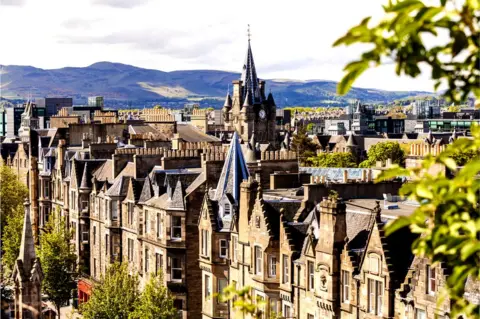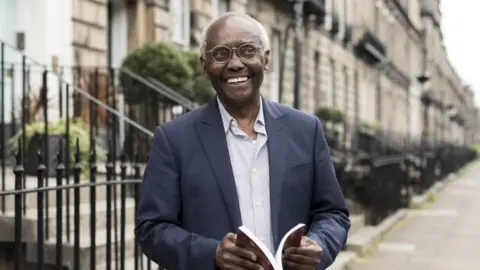Edinburgh says sorry for city's role in slavery and colonialism
 Getty Images
Getty ImagesThe city of Edinburgh has apologised for its past role in slavery and colonialism.
A meeting of the city council was opened with the gesture from Lord Provost Robert Aldridge.
The apology was the result of an action plan from the Edinburgh Slavery and Colonialism Legacy Review Group which made 10 recommendations after studying the city's history.
Acknowledging Edinburgh's part in past wrongs was the first recommendation.
The Lord Provost said: "As civic leader of the city and convener of the council, I apologise to all those who suffered profound physical and mental abuse from the city's past involvement in colonialism and slavery.
"It is impossible to look out from this building across the city and not see how the landscape of the city was shaped by the wealth generated from colonialism and slavery.
"The effects of colonialism and slavery are deeply embedded in the fabric of our city, in the buildings, in the institutions and even in the way that Edinburgh is laid out.
"We cannot deny the benefits that the city has accrued over the years from the exploitation of others and in particular the continent and peoples of Africa."
 Alicia Bruce
Alicia BruceHe said that coming to terms with the city's past and recognising the detriment its ancestors wrought was "very difficult for us all".
He added that residents should now try to reconcile the past with the generations of today to move forward, united in the city's common goals of equality, fraternity and liberty.
The review group was set up in 2020 in response to the Black Lives Matter movement.
It was led by Jamaican-born academic Sir Geoff Palmer, a human rights activist and campaigner on the issue and aimed to fill the gap in knowledge and understanding about the city's past.
In August, the review group shared its recommendations and it was announced that the lord provost would be asked to make the apology on behalf of the city "as soon as possible".
Lord Provost Aldridge thanked Prof Palmer's team for producing a "world-leading piece of work" on the subject which will help shape future policy and engagement in the city.
Following the apology, the next action will be the creation of an independent legacy commission.
The group will oversee the organisation of the remaining actions.
Edinburgh's apology follows a similar move by Glasgow in March, while other UK cities such as Liverpool and London have also issued formal apologies.
